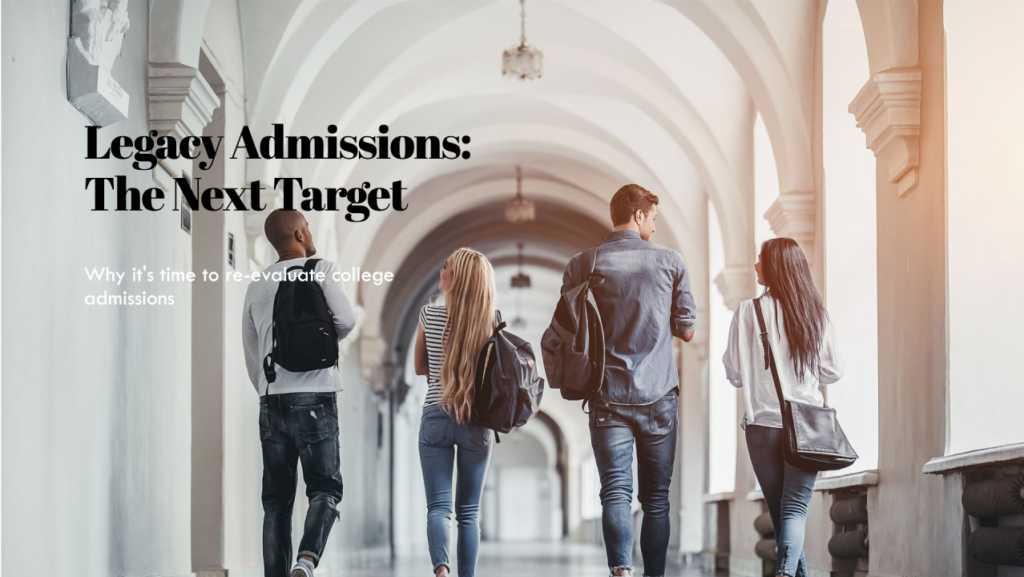The Supreme Court Banned Affirmative Action. Here’s Why Legacy Admissions Should Be Next

With the Supreme Court’s recent decision to ban affirmative action, the spotlight has turned to another contentious issue in college admissions: legacy admissions. This practice, which favors applicants related to alumni, contradicts the meritocratic principles that our educational institutions should uphold.
Legacy admissions have historically skewed college demographics towards wealthier and predominantly white students, undermining efforts to diversify campuses. For example, legacy students are more likely to be accepted than Black and Latino students combined at many top universities, receiving a substantial boost equivalent to an additional 160 points on the SAT (ACLU, 2024). This preference not only impacts diversity but also perpetuates an educational cycle that is less about merit and more about maintaining historical power structures.
Furthermore, legacy preferences are deeply rooted in exclusionary practices, originally designed to limit the enrollment of Jewish immigrants at elite institutions (Brookings, 2024). Today, these policies continue to hinder the representation of other groups, including students of Asian descent, from entering highly selective colleges.
The influence of legacy admissions extends beyond university gates. According to researchers at Harvard Kennedy School, legacy students disproportionately occupy leadership and high-status positions later in life, suggesting that these admissions policies have long-lasting effects on societal structure and governance (Harvard Kennedy School, 2024).
Economic arguments for maintaining legacy admissions, such as increased donations from alumni, do not outweigh the ethical imperative for fairness. In-depth studies have shown that while alumni donations are important, they should not come at the cost of equity and access in education (Inside Higher Ed, 2024).
Institutions that have moved away from legacy admissions, like Johns Hopkins University and Amherst College, have seen an increase in the enrollment of first-generation students, showcasing a shift towards greater educational equity (ACLU, 2024).
As the landscape of higher education evolves, it is imperative that all institutions reevaluate their admissions policies to truly reflect meritocratic values. The end of affirmative action poses a new moral and ethical challenge: to ensure that no student’s future is tethered to their family’s past but is instead grounded in their own abilities and potential.
The Supreme Court’s ruling provides a unique opportunity to reassess outdated admissions practices. By abolishing legacy admissions, colleges can reaffirm their commitment to a fair and equitable selection process, ensuring that every student earns their place based on merit alone.
Dr. Shaan Patel, MD, MBA is the Founder & CEO of Prep Expert (winner of a Shark Tank deal with Mark Cuban), a #1 bestselling author, and a board-certified dermatologist.
Written by Dr. Shaan Patel MD MBA
Prep Expert Founder & CEO
Shark Tank Winner, Perfect SAT Scorer, Dermatologist, & #1 Bestselling AuthorMore from Dr. Shaan Patel MD MBA

ACT Test Dates in 2025
If you’re planning on taking the ACT in 2025, you have several dates to choose from. This year, thanks to…
How MIT’s New Free Tuition Policy Is Leading a New Era of American Meritocracy in Higher Education
Massachusetts Institute of Technology (MIT) recently announced an inspiring policy: the school will now provide free college tuition for families…

How To Get Into Georgetown
Hoya saxa! Georgetown University is one of the oldest and most prestigious universities in the United States. The first federally…